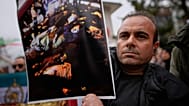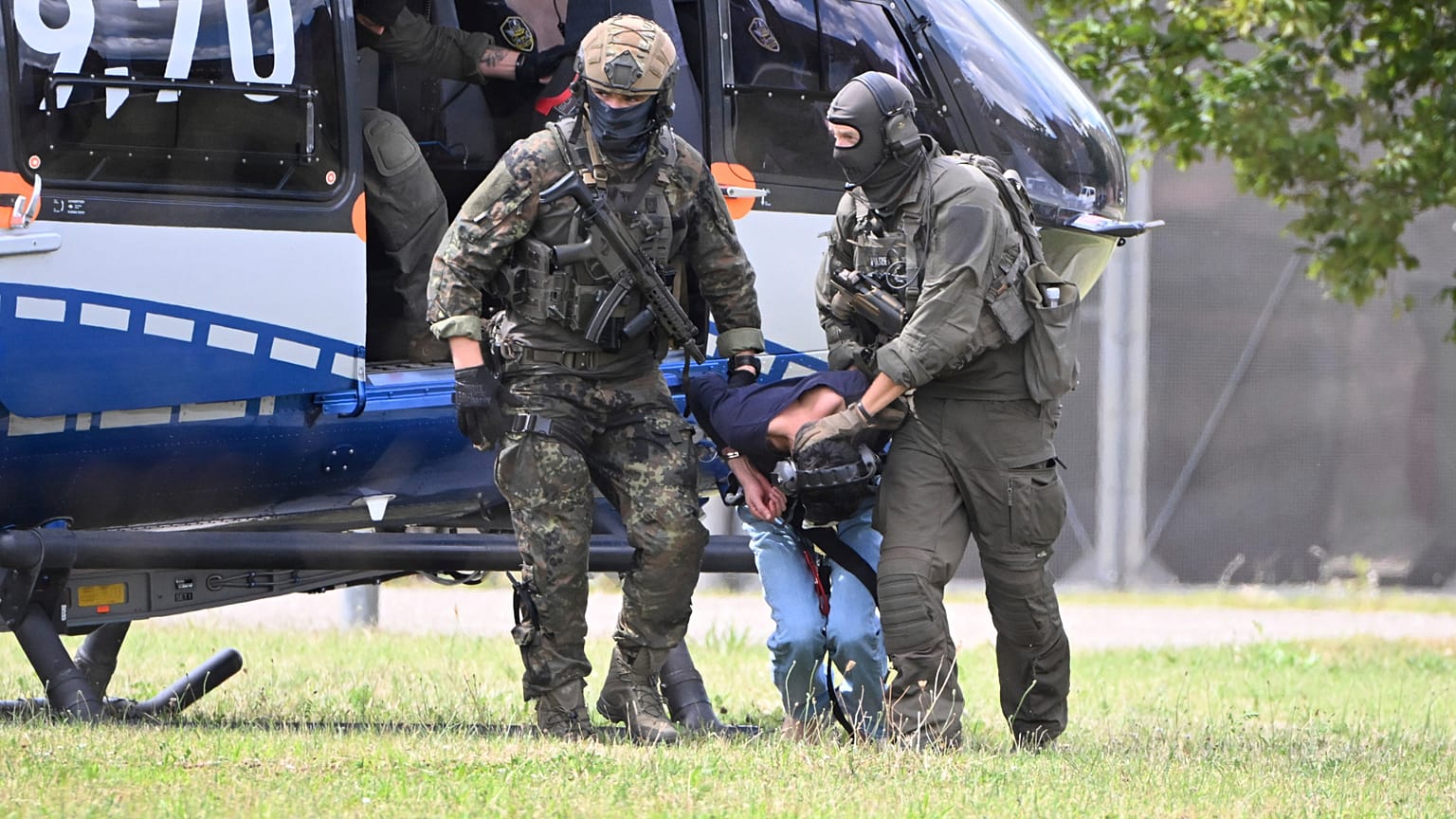The man was arrested after he said he was responsible for the knife attack that left three dead and eight wounded at a festival in Solingen on Sunday.
A failed Syrian asylum seeker has been arrested after he said he was responsible for the knife attack that left three dead and eight wounded at a festival in the city of Solingen on Sunday.
A judge at the Federal Court of Justice in Karlsruhe where the man had been flown by helicopter from Solingen, named him - without identifying his family name - as 26-year-old Issa al H.
The dpa news agency reported, without citing a specific source, that his asylum claim had been denied and that he was to have been deported last year.
On Saturday, the Islamic State militant group claimed responsibility for the attack, without providing evidence. The extremist group said on its news site that the attacker targeted Christians and that the perpetrator carried out the assaults Friday night “to avenge Muslims in Palestine and everywhere.” The claim couldn’t be independently verified.
Friday's attack plunged the city of Solingen into shock and grief. A city of about 160,000 residents near the bigger cities of Cologne and Dusseldorf, Solingen was holding a “Festival of Diversity” to celebrate its 650th anniversary.
People alerted police shortly after 9:30 p.m. local time Friday that a man had assaulted several people with a knife on the city’s central square, the Fronhof. The three people killed were two men aged 67 and 56 and a 56-year-old woman, authorities said. Police said the attacker appeared to have deliberately aimed for his victims’ throats.
The festival, which was due to have run through Sunday, was cancelled as police looked for clues in the cordoned-off square. Instead, residents gathered to mourn the dead and injured, placing flowers and notes near the scene of the attack.
“Warum?” asked one sign placed amid candles and teddy bears. Why?
Among those asking themselves the question was 62-year-old Cord Boetther, a merchant fron Solingen.
“Why does something like this have to be done? It’s incomprehensible and it hurts,” Boetther said.
Officials had earlier said a 15-year-old boy was arrested on suspicion he knew about the planned attack and failed to inform authorities, but that he was not the attacker. Two female witnesses told police they overheard the boy and an unknown person before the attack speaking about intentions that corresponded to the bloodshed, officials said.
The attack comes amid debate over immigration ahead of regional elections next Sunday in Germany’s Saxony and Thuringia regions where anti-immigration parties such as the populist Alternative for Germany are expected to do well. In June, Chancellor Olaf Scholz vowed that the country would start deporting criminals from Afghanistan and Syria again after a knife attack by an Afghan immigrant left one police officer dead and four more people injured.
The IS militant group declared its caliphate in large parts of Iraq and Syria about a decade ago, but now holds no control over any land and has lost many prominent leaders. The group is mostly out of global news headlines.
Still, it continues to recruit members and claim responsibility for deadly attacks around the world, including lethal operations in Iran and Russia earlier this year that killed dozens of people. Its sleeper cells in Syria and Iraq still carry out attacks on government forces in both countries as well as US-backed Syrian fighters.















